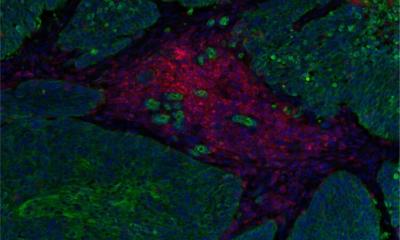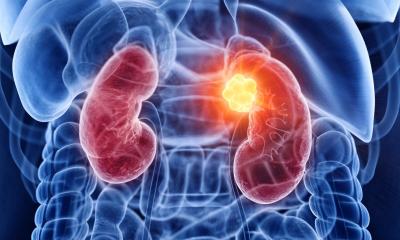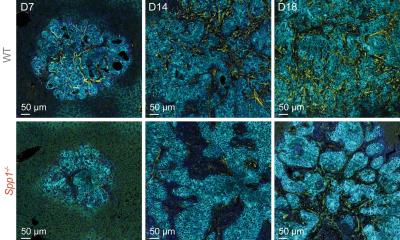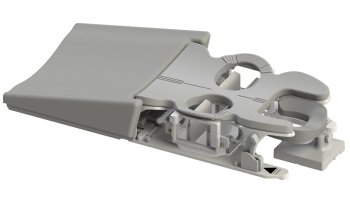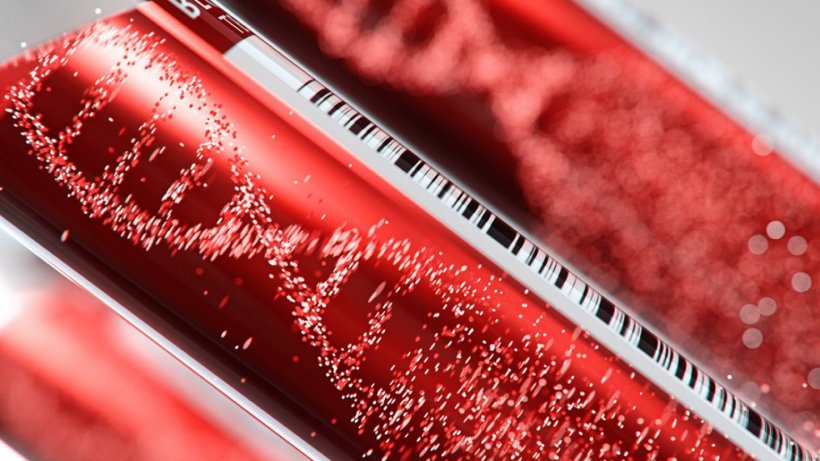
Source: M. D. Anderson Cancer Center
News • NSCLC
Liquid biopsy as effective as tissue biopsy for non-small cell lung cancer
Test more accurately identifies four mutations for which FDA-approved drugs exist and offers faster turn-around time between initial testing and commencement of therapy.
A multi-center study led by researchers at The University of Texas MD Anderson Cancer Center revealed that a liquid biopsy test called Guardant360®, is comparable to standard tissue biopsies in detection of guideline recommended biomarkers in advanced non-small cell lung cancer (NSCLC), has a faster turn-around time, and has the potential to support identification of more patients who can be treated with targeted therapy. The study findings are significant given that 30 percent of lung cancers can be treated successfully with molecular-targeted therapies, which often yield higher response rates than chemotherapy.
The multi-institutional trial was led by Vassiliki Papadimitrakopoulou, M.D., professor of Thoracic/Head and Neck Medical Oncology. “When choosing therapy for patients with NSCLC, it is vital that we know which patients have gene mutations that often respond to molecular therapies. The response rates can be up to 30 percent higher than with chemotherapy or immunotherapy, said Papadimitrakopoulou, “In the past, our only option to test for mutations was to rely on tissue-biopsy-based testing, which can be invasive, have serious complications, is time-consuming and often not adequate to test for all relevant targetable mutations.”

In this comprehensive liquid biopsy study conducted at several participating institutions, Guardant360 employed cell-free tumor DNA (cfDNA) in blood to test for mutations in 282 patients. The test detected seven known predictive biomarkers including genomic alterations in ROS1, BRAF, RET, MET, ALK, EGFR and ERBB2, and one prognostic biomarker, KRAS mutations. Standard tissue sampling detected at least one of predictive biomarkers in 60 patients, while Guardant360 identified biomarkers in 77 patients. Among the remaining 193 patients who did not have one of the seven biomarkers, the liquid biopsy test found the KRAS mutation in 92 patients, compared to 24 patients with standard tissue sampling.
Therapies specifically targeting EGFR, ALK, ROS1 and BRAF gene mutations or fusions are already approved by the U.S. Food and Drug Administration. “We know that guideline-recommended testing is normally completed in only 8 percent of patients with NSCLC,” said Papadimitrakopoulou. “This does not provide all the crucial information for physicians to make an informed therapy decision. This study shows that a highly sensitive and specific liquid biopsy should be part of the standard of care for these patients.”
The study reported a median turn-around time from test order to final results of nine days for the liquid biopsy test, compared to 15 days for tissue-based testing. “Given that advanced NSCLC is often fatal, it is important we get patients on treatment at the earliest possible time,” said Papadimitrakopoulou. “Our findings show that we can greatly reduce the amount of time between testing and initiation of therapy.”
Source: University of Texas M. D. Anderson Cancer Center
01.03.2019



